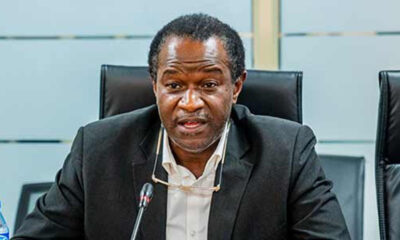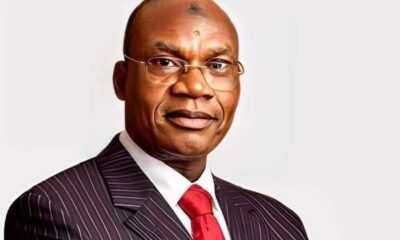The PRP calls on the CBN and the Nigerian Government to rescind the policy and focus on implementing measures that address the citizens’ concerns, including economic growth, job creation, and equitable distribution of resources. The party emphasizes its solidarity with the citizens and its commitment to fighting for a fairer and more prosperous future for all.
News
10 things to know about the newly revised 2024 Student Loan Act

10 things to know about the newly revised 2024 Student Loan Act
President Bola Tinubu recently signed the 2024 newly revised Student Loan Bill into law, thus repealing the earlier 2023 Student Loan legislation with immediate effect.
The new Student Loan Act also known Access to Higher Education Act, 2024, aimed to address some of the loopholes of the previous Student Loan law while introducing new and comprehensive coverage for those seeking tertiary education or technical and vocational skills development.
In this analysis, Newstrends explores key facets of the Act and their impact on Nigerian students.
READ ALSO:
FRSC JTF making progress, impounds 35 trailers conveying 982 people
Electricity tariff: DisCos dares NERC, returns 620 areas to Band A
Fuel scarcity bites harder as NNPC rations supply to depots
Below are ten things to know about the 2024 Student Loan Act
- Establishment of NELFUND: First and foremost, the Act stipulates the establishment of the Nigeria Education Loan Fund (NELFUND) as a corporate body that can sue and be sued in its name and has the power to acquire, hold, and dispose of movable and immovable property for the purpose of its functions.
- NELFUND to provide loans to qualified Nigerians for tuition, fees, charges, and upkeep: The fund is designed to offer loans to eligible Nigerians, covering tuition, fees, charges, and living expenses for their education in recognized higher education and vocational training institutions within Nigeria.
- Set Up Structure for Funding NELFUND: The Act also stipulates the process and structure through which NELFUND will be funded. According to the 2024 Student Loan Act, the student loan program will be financed by allocating 1% of all taxes, levies, and duties that the Federal Inland Revenue Service (FIRS) collects and that go to the Federal Government, directing these funds to a General Reserve Fund.
- Removal of Family Income Barrier: Prior to the enactment of the 2024 Student Loan Act, the family income of an applicant was a determining factor for loan approval. The applicant’s family income must not exceed N500,000 per annum. Under the revised law, however, this requirement has been removed, and family income will no longer be a prerequisite for eligibility for the student loan.
- Removal of Guarantor Barrier: The 2023 Student Loan Act stipulated that an applicant must provide a minimum of two guarantors. The guarantors must fall into one of the following categories: (i) Civil servants of at least level 12 in the service, (ii) Lawyers with a minimum of 10 years of post-call experience, (iii) Judicial officers, or (iv) Justices of the peace. The 2024 legislation has no such requirement.
- Loan to include Skill-development Programs: According to the 2024 Student Loan Act, application is not restricted to students in tertiary institutions alone, but also those seeking skill-development programs. The 2024 Act is inclusive to those who want to learn vocational or technical skill in a government-owned institution, but do not have the resources to do so.
- Removal of Parents’ Loan History as a Prerequisite: The Act also stipulates the removal of parent’s loan history as a prerequisite for securing the loan for eligible candidates.
- Beneficiaries to begin repayment 2 years after NYSC: The revised law also stipulates that recovery process from beneficiaries of the loan scheme would commence two years after the National Youth Service Scheme (NYSC).
- Punishment for filing false Statement to NELFUND: The newly revised Student Loan Act also stipulates punishment for those who provide false Statement to the Fund. Such person under this section is guilty of a felony and is liable to imprisonment for three years.
- Debt Forgiveness: Lastly, the Act offers a Debt Forgiveness clause in the event of death or acts of God causing inability to repay. In sum, the presidential spokesperson, Ajuri Ngelale, noted that the updated Act addressed the hindrances in the initial version, setting the stage for safeguarding Nigeria’s prospects. According to him, it makes it possible for citizens to fund their studies, learn vital skills, and play a role in national growth.
10 things to know about the newly revised 2024 Student Loan Act
News
Just in: Tinubu lands in Abuja after Netherlands, Saudi trips

Just in: Tinubu lands in Abuja after Netherlands, Saudi trips
President Bola Tinubu has returned to Nigeria after his trips to the Netherlands and Saudi Arabia.
According to the NTA, Tinubu returned on Wednesday.
On April 22, Tinubu left Abuja, the country’s capital, for the Kingdom of The Netherlands on an official visit.
Ajuri Ngelale, presidential spokesperson, said the president was visiting The Netherlands at the invitation of Prime Minister Mark Rutte.
READ ALSO:
- Ekiti university expels students over viral bullying video
- Troops kill IPOB commander, four others in Imo
- National clean cooking policy gets FEC approval
After the engagements in The Netherlands, Tinubu proceeded to Riyadh in Saudi Arabia to attend a special World Economic Forum (WEF) meeting between April 28 and 29.
Bayo Onanuga, the special adviser on information and strategy to the president, on Tuesday announced that the President and his aides will return on Wednesday in a post on his X handle.
“President Bola Ahmed Tinubu, along with his aides, will return to Nigeria tomorrow from Europe,” Onanuga wrote.
Just in: Tinubu lands in Abuja after Netherlands, Saudi trips
News
National clean cooking policy gets FEC approval
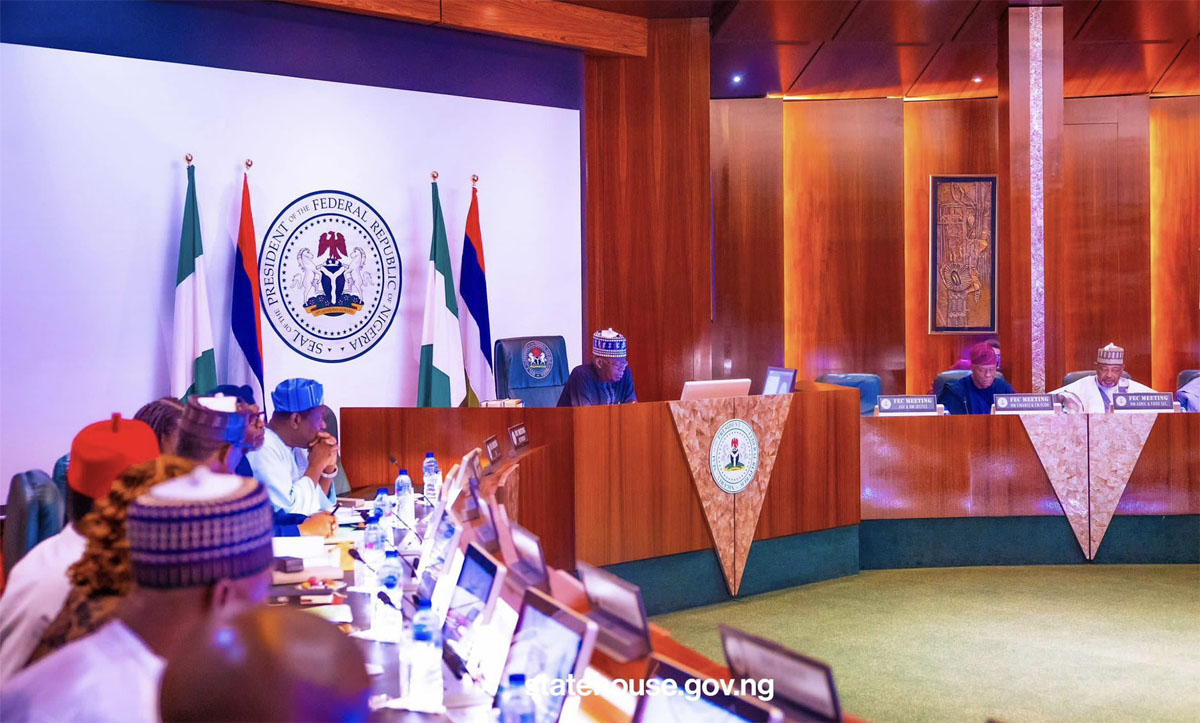
National clean cooking policy gets FEC approval
The Federal Executive Council (FEC) has approved the National Clean Cooking Policy to ensure access to clean cooking energy solutions for all Nigerian households and institutions by 2030.
During the policy’s launch, Minister of Environment Balarabe Abbas Lawal affirmed the government’s commitment to supporting policy domestication by implementing key recommendations, as stated by the Nigerian Alliance for Clean Cooking (NACC).
“We will conduct extensive awareness campaigns to highlight the benefits of cleaner cooking solutions. Additionally, we’ll offer technical and business training to enhance the capabilities of local producers and distributors. Fiscal and monetary incentives will also be provided to encourage local manufacturing of clean cooking fuels and technologies,” he elaborated.
Minister of State for Environment, Dr. Iziaq Kunle Salako, emphasized the ministry’s plan to organize regional and state launches to raise awareness about the policy.
READ ALSO:
- CBN cybersecurity levy will worsen Nigerians’ situation – PRP
- NLC kicks against introduction of cybersecurity levy
- NANS rejects cybersecurity levy, says it’s added hardship for students
“Effective implementation of the policy relies on states and local governments aligning with its goals,” he emphasized, pledging adequate budgetary allocations from the Federal Ministry of Environment.
Dr. Salisu Dahiru, Director General of the National Council on Climate Change, highlighted the significance of implementing the clean cooking policy in achieving national climate change objectives.
“Development partners have allocated substantial financial resources to support the national clean cooking goal,” he noted.
Ewah Eleri, Chairman of the Board of Trustees of the Nigerian Alliance for Clean Cooking, praised FEC’s approval of the national policy and called for collaboration among government levels, the private sector, civil society organizations, and international development agencies to combat cooking energy poverty and mitigate climate change impacts.
Eleri thanked all partners, particularly the Clean Cooking Alliance and the Heinrich Boell Foundation, for their contributions to policy development.
National clean cooking policy gets FEC approval
News
CBN cybersecurity levy will worsen Nigerians’ situation – PRP
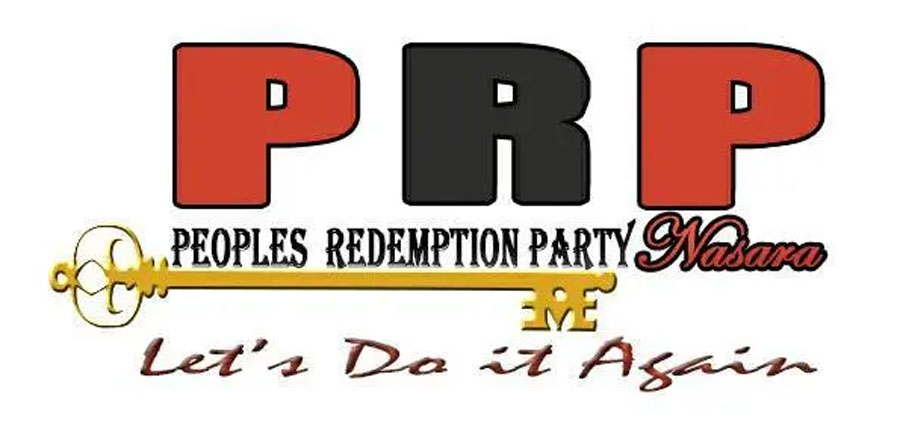
CBN cybersecurity levy will worsen Nigerians’ situation – PRP
The Peoples Redemption Party (PRP) has condemned the cybersecurity levy imposed on electronic transfers by the Central Bank of Nigeria (CBN), describing it as ill-timed and insensitive, especially considering the current economic challenges faced by Nigerians due to the Federal Government’s unpopular policies.
The PRP, in a statement signed by its acting national publicity secretary, Comrade Muhammed Ishaq, and made available to WITHIN NIGERIA, called on the CBN to withdraw the policy and implement measures to alleviate the suffering of Nigerians.
READ ALSO:
- NLC kicks against introduction of cybersecurity levy
- NANS rejects cybersecurity levy, says it’s added hardship for students
- Dortmund whip PSG 2-0 aggregate to reach Champions League final
The statement questions the timing of the levy and criticizes the government for collecting money from Nigerians to fund the Office of the National Security Adviser without ensuring transparency or accountability in the utilization of the funds.
The PRP condemns the CBN’s directive and warns that it will further worsen the financial difficulties faced by Nigerian citizens, particularly impacting vulnerable groups such as hardworking individuals, families, and small business owners.
-
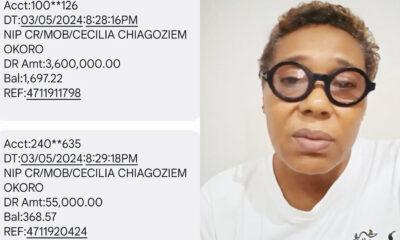
 Entertainment3 days ago
Entertainment3 days agoNollywood veteran Shan George weeps as fraudster clears ₦3.6m from her account (VIDEO)
-

 metro3 days ago
metro3 days agoDSS seals Plateau clinic over patient’s death
-

 International1 day ago
International1 day agoNetanyahu rubbishes Hamas ceasefire proposal
-

 Politics3 days ago
Politics3 days agoPDP: Sule Lamido blames court for mass resignation from party
-

 metro3 days ago
metro3 days agoWe’ve arrested seven suspected cultists, armed robbers in Anambra – Police
-

 News1 day ago
News1 day agoNigerian varsity VC suspended over alleged gross misconduct
-

 News2 days ago
News2 days agoFubara: I have moved on with governance despite political pressure
-

 Politics21 hours ago
Politics21 hours agoAbia deputy gov candidate, lawmaker dump PDP

